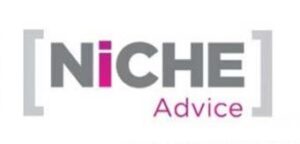How we can help with Bridging Loan:
- Free Quote
- No upfront broker fees
- Broker fees of £499 inc VAT for standard cases paid on completion of the deal (This means you don’t pay us until your deal is done)
- Auction, Bridging and Development Finance in one place.
- Experienced Brokers watch our Youtube channel to learn more
- A hand picked panel of reputable Bridging Loan lenders
- Loans from £50,000 to £20,000,000
- Residential, Buy to Let and Commercial Finance Exit routes
- First Time Buyers Auction Finance
- First Time Landlords Auction Finance
- Light Refurbishment products offered for “flipping”
- Bridge to Let Product to give landlords certainly and comfort
- Complex Income structure
- Lending on the end value
- Regulated and Unregulated Loans
Frequently Asked Questions on Bridging Loan deals (FAQs)
I’m a professional finance broker and in this article, I will share 10 commonly asked questions on Bridging Loan products. These frequently asked questions on Bridging Loans will hopefully serve as a good start point but as matters can get quite complex I would always recommend you team up with an FCA registered broker for full advice, such as Niche Advice.
Top 10 Commonly Asked Questions on Bridging Loan
- Can you get me Bridge if I don’t own property?
You could be a first time buyer. As you would expect the best terms are available to applicants with prior experience. If you own more than one property than cross-charges might release equity.
Bridging Lenders will also look at your personal wealth and income and experience to support to any applicant. - How much deposit do I need to finance a Bridging Loan?
Every Bridging Lender will set out their maximums for deposit or equity in the asset being used as security this typically ranges between 25% to 40%. In most cases, the applicants will choose to have the fees deducted from this figure and often the interest payments upfront too. So the 25% minimum can quickly start to look like 30%. The other dynamic to ponder is the basis of the valuation: some lenders go off the market value and others on the basis of a quick sale. - Can you Remortgage within 6 months of a Bridging Loan?
Yes and No. If this is to be your residential home then, by and large, the period of ownership is not critical.
If however, this is a buy to let remortgage then most mainstream lenders want the property to be owned for at least 6 months and those that don’t typically limit the transaction to straight balance swap. There are course exceptions to these rules but these tend to be via specialist lenders. You are more likely to get success with capital raising if you can demonstrate you have spent money to improve/renovate the security but this will have to be substantial work carried such as extra rooms or change of property use and not just a simple redecoration of kitchen and bathroom. - Can you take your equity out after you have purchased?
See point 3 above. Home improvements are normally fine. If you are looking to release funds for the next project within 6 months of ownership then I strongly suggest you talk this through with your professional adviser. Outside of 6 months is normally fine. - Why are the Bridging Loan costs so much more expensive than a buy to let mortgage?
Risk – A Bridging Loan is normally taken to put an asset into a place that is useable for the mainstream market. For instance, putting in a working kitchen and bathroom. Whilst the property is not readily saleable to the mass market the standard Mortgage Lenders will shy away from it as should they need to repossess and they want the ability to sale instantly. Bridging can also be used to make good title deeds or roll interest rather than assess monthly serviceability – In simple words, it’s simply because there is a greater element of risk to the lender attach so they charge for it.
Short period – They also only lend for a short period normally 3 to 24 months so they need to make their money back far quicker than Mortgage Lenders who could retain the customer for 25 years.
- Can I get a Mortgage for an auction rather than Auction finance?
Yes, absolutely but if it is for the subject property you must be well prepared and rely on the process running like clockwork and a willing mortgage lender. It’s hard as there are elements of the process that are beyond your control such as the speed of lenders, surveyors and solicitors, and switching your eye to a different property can result in going back to the start of the process again.
The better way to go about it would be to remortgage a property you already own to release equity as then you become a cash buyer and the whole process becomes a lot smoother. - Why use a broker rather than a Bridging Loan lender direct?
Bridging is a very specialised area of property financing and you really need guidance and expertise. Don’t be fooled – just because the lender has a flashy website, some reviews or even good rate; it doesn’t follow that they can deliver the service to secure the most important thing – the property for are after – in a timely manner. Good Brokers can stay on top of everything on your behalf. They also act as hard negotiators to secure the best terms and defend them throughout the process – this is more important than you think – as unlike Mortgages because Bridging Lenders are known for changing terms mid-process and not all lenders are the same when it comes to treating their customers fairly.
An expert Broker will also be able to provide full guidance on the exit strategy and test this ahead of the bridge being taken out. Sadly I often take calls where clients have used other Brokers or attempted a bridge themselves and have been stuck on either emergency terms or close to losing the property altogether. - What are the biggest issues you come across with Bridging Loans?
Down-valuations – Every applicant I’ve known is positive and dreams of making the most money out of every project. Conversely, the lender’s surveyors are conservative by nature as their professional reputations and insurance are on the line; and unlike development finance value things as they are today and not in the future. They might also be directed to value on a sale being completed in a number of days “restricted day value”, say in 90 or 180 days. This shorter timeframe can reduce the value of a property as you are not holding out for the best price or waiting for ideal market conditions to sale.
Legals – This is often the legal process. The selected solicitor must be used to dealing with Bridging Lenders and not many are. The Bridging Lender’s legal representatives’ are likely to ask for large (non-refundable) commitment fees before they will lift their pens. Some Bridging Lenders entrust their Solicitors to be effectively another second level of Underwriting so whilst you thought the finance was agreed it gets reassessed and more questions flow.
Extensions – Another area which is murky is an extension to the borrowing period. Most Bridging Lenders will push hard for the debt to be repaid in the original period and are not afraid to issue legal action if this is not the case. Others will add a considerable premium to extensions. My advice is always to agree for a longer period than you think you’ll need at the outset as projects can overrun.
Decisions-In-Principles – Bridging Lenders give these out like a sticker to a kid in a queue for an event. They are merely the first step in a long path to agreement. I, therefore, urge to get further down the line with the application process before you seriously dip your hand in your pocket.
- What type of broker do I look for when doing Bridging Loan?
Firstly avoid any brokers with any ties to a set number of lenders or on the development site where it’s unclear who their ultimate paymasters are. Ask the stopping question are they fully representing my interests? Outside of this if you are looking to exit onto a remortgage then you are probably better off looking for a broker who can deal with this part of the transaction too and although some Buy to Let Mortgages are in fact Unregulated and don’t fall under the FCA remit to have full access to the wider market its best you opt to deal with regulated and listed on the FCA registered broker, such as Niche Advice.
How can I get in touch with you to talk about my Bridging Loan options and property strategy?
If you need to talk to use about Bridging Loan products do get in touch by completing the enquiry form below.


